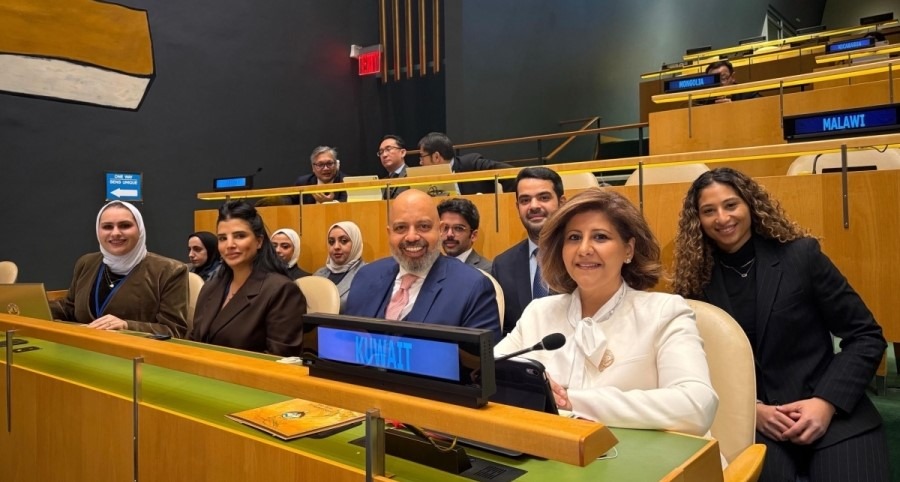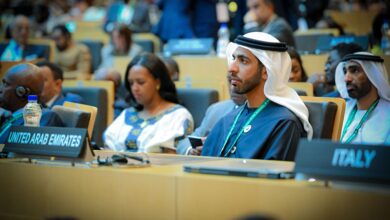Kuwait reaffirms strong commitment to fight human trafficking at UN Summit
Kuwait firmly committed to strengthening its national systems, developing institutional capabilities, and maintaining close collaboration with UN agencies and member states, stressing that international cooperation remains the most effective path to eradicating this transnational crime -- Ambassador Sheikha Jawaher Al-Duaij Al-Sabah

Kuwait’s Assistant Foreign Minister for Human Rights, Ambassador Sheikha Jawaher Al-Duaij Al-Sabah, reaffirmed on Monday Kuwait’s steadfast commitment to combating human trafficking, describing the crime as a “flagrant violation” of human rights and a direct threat to the security and stability of societies.
Speaking before the high-level meeting of the UN General Assembly on the evaluation of the Global Plan of Action to Combat Trafficking in Persons, Sheikha Jawaher said the gathering represents “a vital moment to assess the progress achieved and examine the remaining challenges,” including child trafficking, forced labor, the involvement of organized criminal groups, and the misuse of modern technologies and artificial intelligence in exploitation, reports Al-Rai daily.
She emphasized that people with disabilities remain among the groups most vulnerable to trafficking, underscoring the need for stronger, more comprehensive protection mechanisms that safeguard all at-risk communities from exploitation.
Sheikha Jawaher highlighted Kuwait’s commitment to aligning its national efforts with the Sustainable Development Goals —particularly Goal 8 — and with its international obligations under the Convention against Transnational Organized Crime and its related protocols.
Within the national framework, she pointed to the establishment of the National Standing Committee to Combat Trafficking in Persons and Smuggling of Migrants, which recently launched the National Strategy 2025–2028 under the theme “Towards Protecting Rights and Promoting Justice.”
The strategy adopts an integrated approach centered on early detection, institutional accountability, victim protection, and ensuring that offenders are not granted impunity.
Kuwait has also expanded its protection mechanisms by activating the national referral system, launching an electronic reporting platform, and establishing specialized departments within the Public Prosecution and the Ministry of Interior.
Additionally, shelters for both men and women have been developed to provide medical, psychological, and social support, serving as practical models for assisting potential victims. The state has also designated six locations for the development of workers’ cities designed to ensure safe and dignified living and working conditions.
On the regional and international level, Kuwait has signed a memorandum of understanding with the United Nations Office on Drugs and Crime and continues close cooperation with the International Organization for Migration and the International Labor Organization.
She also highlighted Kuwait’s hosting of the sixth Regional Governmental Forum on Combating Trafficking in Persons last April, which produced significant initiatives to unify national strategies within a broader Gulf framework.
Furthermore, Kuwait played an active role in the 2025 meetings of the Commission on Crime Prevention and Criminal Justice in Vienna, reinforcing its dedication to international criminal justice, capacity building, and coordinated global efforts against human trafficking.
Sheikha Jawaher concluded by affirming Kuwait’s firm commitment to strengthening its national systems, developing institutional capabilities, and maintaining close collaboration with UN agencies and member states, stressing that international cooperation remains the most effective path to eradicating this transnational crime.












